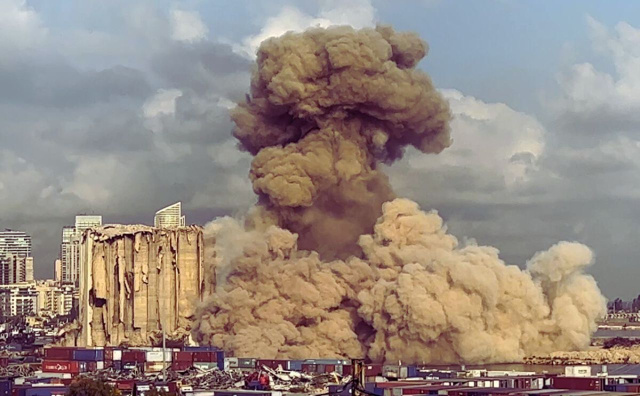
Bulgarian authorities have detained Igor Grechushkin, the Russian shipowner linked to the ammonium nitrate shipment that caused the catastrophic Beirut port explosion in August 2020.
The blast devastated Lebanon’s capital, killing at least 218 people, injuring more than 6,000, and leaving entire neighborhoods in ruins. It was one of the largest non-nuclear explosions in modern history, with damages estimated in the billions of euros.
Grechushkin, who also holds Cypriot citizenship, was arrested last week at Sofia’s Vasil Levski Airport after arriving from Cyprus, according to Lebanese judicial sources. His detention comes nearly five years after an Interpol arrest warrant was issued against him and the ship’s captain, Boris Prokoshev.
Lebanese court officials confirmed that extradition documents are being prepared to formally request his transfer to Beirut. If Bulgaria declines extradition, Lebanese investigators may travel to Sofia to question Grechushkin on Bulgarian soil.
The ammonium nitrate, originally transported on Grechushkin’s vessel, had been offloaded and stored haphazardly in Beirut’s port warehouses.
Investigators say the explosion was triggered by a fire in the facility, unleashing devastation that compounded Lebanon’s economic collapse, which the World Bank later described as among the worst in more than a century.
Despite the scale of the disaster, no Lebanese official has been convicted. The probe has faced political and legal obstructions.
Judge Fadi Sawan, who charged former Prime Minister Hassan Diab and three ex-ministers with negligence, was removed under political pressure. His successor, Judge Tarek Bitar, revived the inquiry in July, summoning senior figures from Lebanon’s political and security leadership.
Lebanon’s newly formed government, led by President Joseph Aoun and Prime Minister Nawaf Salam, has pledged to push forward the investigation. However, accountability has remained elusive, and many victims’ families continue to protest the lack of justice.
The arrest of Grechushkin is seen as the first meaningful step in years that could advance the judicial process. Whether it results in his extradition or questioning in Bulgaria, his detention may mark a turning point in Lebanon’s pursuit of accountability for one of the darkest chapters in its modern history.
